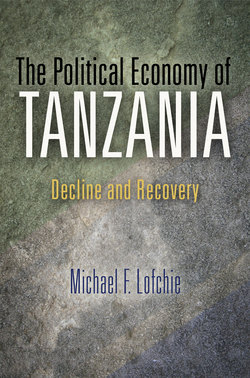The Political Economy of Tanzania

Реклама. ООО «ЛитРес», ИНН: 7719571260.
Оглавление
Michael F. Lofchie. The Political Economy of Tanzania
Отрывок из книги
The Political Economy of Tanzania
Decline and Recovery
.....
Why, then, has ethnicity not asserted itself with greater force in Tanzania? A theory of cultural pluralism that emphasizes the importance of inequalities between different ethnic groups provides one answer. Colonial historian John S. Furnivall first developed the idea that ethnicity was a volatile political factor in socioeconomic environments where differing ethnic groups had differing amounts of access to the upper levels of a society, such as the highest positions in government and administration or the business sector.18 Later cultural pluralists termed this phenomenon “differential incorporation,” a concept that called attention to ethnic frictions that arise when a country’s patterns of economic, social, and political stratification display distinctively ethnic characteristics. Later cultural pluralists also believed that the volatility of stratification along ethnic lines derived from the tendency for people to perceive this form of inequality as relatively permanent.19
Colonial Tanzania exhibited one important element of this phenomenon. Members of Tanzania’s Asian community—persons of Indo-Pakistani descent—tended to be concentrated at the middle or upper levels of the Tanzanian social structure. They were prominent in Tanzania’s mercantile sector as the owners of the business enterprises that conducted much of the country’s retail trade. During the colonial period, Asians were also a conspicuous presence in Tanzania’s white-collar professions, in the middle levels of the civil service, and in the clerical and managerial levels of major private sector organizations, such as the country’s largest banks, insurance companies, and trading firms. The Asian presence as a predominant middle class seemed to represent a significant barrier to African upward mobility both in the public sector and in the middle levels of these private sector institutions, a goal that was at the heart of the Tanzanian nationalist movement.
.....